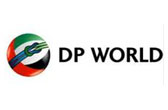Dubai Ports Can't Catch A Break

On Tuesday, Mohammed Sharaf, DP World's chief executive officer, was criticized by Democratic Sen. Charles Schumer and Republican Rep. Peter King for comments on CNN about how his company operates.
The two lawmakers from New York asked Homeland Security Secretary Michael Chertoff to examine Sharaf's comments that port operators do not have security responsibilities, that he didn't know how much U.S.-bound cargo was inspected by automated imaging machines, and appeared unaware of security procedures in the Port of Jebel Ali in Dubai.
Schumer and King also complained about Sharaf's expressions of confidence that the deal would be approved because DP World is obligated to pay the shareholders of Peninsular and Oriental Steam Navigation Co. DP World completed the $6.8 billion merger on Tuesday, but has made arrangements to keep separate the management of the United States facilities to give the government time to conduct a second review about whether DP World poses a threat to national security.
"Mr. Sharaf's comments and his view that this is simply a run-of-the-mill economic transaction, merit further investigation to ensure that DP World, its leadership and employees share our commitment to security," the legislators wrote Chertoff.
But according to the transcript of Sunday's CNN Late Edition, Sharaf actually said security measures are not only the responsibility of the port operator, but also of the customs authorities and coast guard in each nation.
"Port operators don't control the security of the port," Sharaf said, while indicating in the interview that the company takes steps to implement many security regulations to make sure authorities have confidence in their operations.
Although the lawmakers singled out DP World officials for saying they don't know the container's contents, industry officials say that type of information is not shared by vessel operators or customs authorities with the terminals themselves.
Sharaf said Dubai Customs would have figures on the numbers of inspections conducted on behalf of the United States since it is the agency that works with U.S. Customs and Border Protection, which actually receives the electronic manifest from the ocean carrier 24 hours prior to loading.
As for the deal going through, Sharaf appeared to be referring to suggestions that the entire transaction for terminals around the world be held up, saying that could not be done because of contract obligations.

0 Comments:
Post a Comment
<< Home